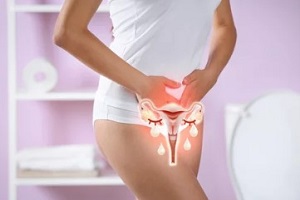 Vaginal yeast infections are an unfortunate part of life for many women. These infections are caused when the candida fungus, which is a normal part of your vagina’s microscopic bacterial ecosystem, grows out of control.
Vaginal yeast infections are an unfortunate part of life for many women. These infections are caused when the candida fungus, which is a normal part of your vagina’s microscopic bacterial ecosystem, grows out of control.
In the US, the Centers for Disease Control and Prevention reports that vaginal candidiasis is the second most common vaginal infection behind bacterial vaginal infections, leading to around 1.4 million outpatient doctor visits each year.
Although a vaginal yeast infection is not considered a sexually transmitted infection, many people associate them with sex because they do tend to develop after vaginal intercourse in certain women who are prone to them.
Although the timing can sometimes be a coincidence as many other factors can also trigger yeast infections, there are still some steps that can be taken to keep these infections at bay.
How Does Vaginal Intercourse Lead to Yeast Infections?
It is important to understand how vaginal intercourse can result in a yeast infection. and are the result of a normal fungus in the vagina growing uncontrollably. In the case of vaginal intercourse, bacteria from your partner’s penis, finger, or sex toys can be introduced into your vagina’s ecosystem and disrupt it, triggering a yeast infection.
Ways to Prevent Yeast Infections
Here is a look at some effective ways of reducing your chances of experiencing a yeast infection after sex.
Take Precautions
If you are concerned about getting a yeast infection from sexual activity, a condom or dental dam can help minimize the spread of bacteria through sexual activity.
Wash Up Afterward
 It is important to bathe after sexual activity if you are prone to yeast infections, taking care to avoid the use of perfumed soaps and hygiene products in the genital area as these can increase your likelihood of a yeast infection.
It is important to bathe after sexual activity if you are prone to yeast infections, taking care to avoid the use of perfumed soaps and hygiene products in the genital area as these can increase your likelihood of a yeast infection.
You should also avoid douching as these products can disrupt your vagina’s natural balance of bacteria by removing the beneficial bacteria there that serve to fight infections. Do not use a hot tub or take an extra hot bath.
Wear Breathable Undergarments
One effective way of avoiding yeast infections both after sex and in general is by sticking to breathable underwear. Look for underwear that is made of cotton as it can help keep you dry and does not retain heat and/or moisture.
Many types of lingerie are made with other materials, so it may be worth considering whether something you are wearing for sexual activity could be contributing to your yeast infection.
You should also make sure the clothes you wear around your genitals are as loose as possible after sex to reduce your chances of a yeast infection. This includes jeans and pants, as well as pantyhose and tights.
Eat Yogurt With Active Cultures
One easy way to reduce your chances of experiencing a yeast infection after sex is consuming yogurt that contains active cultures. These cultures add to your body’s healthy bacteria that keep yeast under control and infections at bay.
Avoid Partners With an Active Yeast Infection
Although penile yeast infections are not as common as vaginal yeast infections, they do exist and are not unusual. A yeast infection can show up on the penis despite not being considered a sexually transmitted infection.
It is important to keep in mind that having penetrative sex with an individual who is experiencing a penile yeast infection also raises your risk of experiencing a vaginal yeast infection. Likewise, you can pass a yeast infection onto your partner.
Therefore, it is best to avoid sex until your partner is no longer experiencing the symptoms of a yeast infection. This can also help prevent passing the same infection back and forth.
Avoid Sexual Activity With a Partner With Oral Thrush
Researchers have shown that your risk of a yeast infection increases when you receive vaginal oral sex because it introduces bacteria and candida from the gums, tongue, and mouth of your partner to your vagina. The risk is even higher if your partner has oral thrush, so avoid this type of activity until they have recovered.
What Are the Symptoms of a Yeast Infection After Sex?
Keep in mind that the symptoms of a yeast infection may take a couple of days or even a week to develop. If you feel discomfort immediately following sexual activity, it is unlikely to be a sign of a yeast infection.
Some symptoms to watch for include intense itching, irritation, redness, and a type of white discharge that resembles cottage cheese, either in your underwear or when wiping your vagina. You may also experience some pain while urinating, which is why yeast infections may sometimes be confused with urinary tract infections. Some yeast infections do not have any symptoms.
Reach Out to the Health-care Team at Raleigh Gynecology & Wellness
If you are experiencing yeast infections, a doctor can help you identify the cause and develop a plan to keep this frustrating problem under control. Contact Raleigh Gynecology & Wellness today to schedule an appointment with the knowledgeable women’s health-care professionals.
